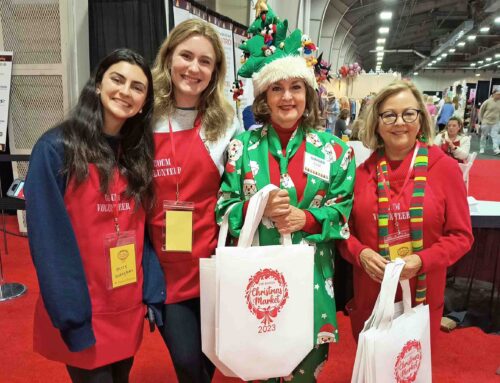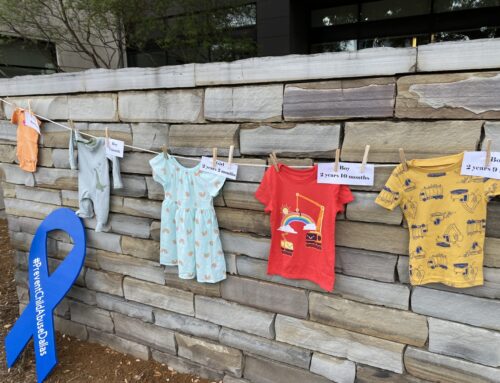These days, crime seems rampant, jobless rates are up, and more people are homeless than ever before. Yet the prevailing attitude often seems to be “every man for himself.”
Whatever happened to Good Samaritans?
Well, a lot of them are surfacing at The Wilkinson Center, 1314 Munger Blvd. at Live Oak, which receives funding and support from East Dallas organizations such as the Lakewood Service League.
A private, non-profit organization, the center’s 90 volunteers and two staff members aided more than 31,000 people last year. Accomplishments including placing 194 people in jobs; feeding 13,400 children; dispensing 165,241 pounds of food, 61,000 items of clothing and 663 pairs of shoes; providing 350 toys; finding housing for 227 people; referring 51 people for legal aid, 72 for medical aid and 74 for substance abuse; and paying for 44 prescription medicines.
“Our budget is $150,000 a year, and all of it is donated,” said Sande Wilkinson, center chairman. “A lot of it is designated when it comes. The Lakewood Service League has funded us for years. Their kind of support lets us do what we do.”
For example, the Lakewood Service League contributed $6,000 to the center’s job bank for its September 1990-April 1991 funding year. According to Sandra Hitz, job bank director, the center sees about 100 people monthly seeking employment and places approximately 25 percent.
“Forty percent of the people we see have good job skills, 40 percent have low skills, i.e., housekeeping, meat processing or fast-food service capabilities, and 20 percent are professionals or skilled in specific vocations,” Sandra says. Some clients are college graduates, while others don’t have a GED or even a junior high school diploma.
The center initiated training sessions this year for the unemployed, and each client must attend one training session prior to meeting with a job bank counselor. In addition to center volunteers, training was provided by the Dallas Urban League in January and February, and in March by the Texas Employment Commission, Sandra said. The center intends to initiate weekly training, with a “round-robin” of counselors. People with personnel skills, job training expertise, or related experience, are invited to volunteer as counselors.
Mike Powell is one of the center’s success stories. One year ago, Mike, 41, moved to East Dallas from North Dallas. At the time, he was involved in a cognitive mediation program at Dallas Rehabilitation Center, recovering from an aneurism. Mike received permission from his therapist to move his work trial from the hospital to the center.
In May 1990, he went to work full time in the center’s clothing room, sorting used garments, working in the food pantry, handling daily filing at the reception desk, and helping job bank volunteers.
Later, Mike was hired by Parkland Hospital, where he worked for six-and-a-half months as a cashier in the emergency room. He quit a month ago for various reasons and is back in the job market.
“The job bank is what saved me last year to pay my bills, etc., and I have no doubt they’ll help me again,” he said.
Kathy Collins, 31, moved to East Dallas in 1987 from Memphis, Tenn., needing a job to support her five children, who now range in age from six to 15.
She inquired at the job bank for office work, but she lacked experience. On her own, Kathy attended Texas Institute and studied data entry. After finishing school, she returned to the center last August and helps daily with data entry, filing, sorting clothes, food pantry activities, reception work and light typing.
In addition to center volunteer work, Kathy helps clean condos and penthouse suites in Mesquite and downtown Dallas while she looks for permanent employment.
“I appreciate all the job experience they have given me, and they definitely help me a lot,” Kathy says. “They don’t turn their back on you when you’re in need.”
“They have a lot for kids. My son didn’t have many clothes when he came, but they gave him what they had. If we don’t have a phone, they let us use the phones here so someone with a job can contact us. Otherwise they’d never find us. They even provide us with bus transportation to find jobs.
“If it weren’t for them, a lot of us would be worse off than before.”





